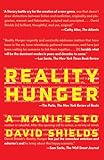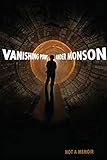When she was seventeen, Deb Olin Unferth trailed her boyfriend into Central America to join a revolution. Any revolution. They ran out of money, and so they came home. “I was eighteen. That’s the whole story,” Unferth tells us. This is not the whole story, and we know this because we are only two pages into a 224-page book. The revolution winds up serving as the backdrop for a different kind of war, the one between the author and George, the philosophy major she fell for as a freshman at a “large state school in a large state. “ George is mysterious, magnetic, incapable of genuine human interaction. Unferth convinces herself that he is a genius and affixes herself to him with a love that borders on veneration. It’s this infatuation, and not concern for the fate of Latin America’s children that compels her to leave school to take a volunteer job at an orphanage caught in the middle of warring El Salvadorian military forces. After Unferth gets them banished from the orphanage because she won’t wear a bra, they hitchhike through a series of ravaged countries, running out of money and falling out of love and not wanting to admit to either one.
 With Revolution: the Year I Fell In Love and Went to Join the War, Unferth accomplishes what a lot of writers wish they could, completing a book that establishes her as a literary light and also serves as a settling of scores after a relationship that veered madly off course. The whole score-settling aspect of things is more complicated than I’m giving it credit for here, but the fact remains that there are a lot of reasons to write a memoir and one of them is to give yourself the chance to live history again, this time with all the events that matter solidly under your control. Revisiting her early twenties gives Unferth the agency she didn’t have back then, and it’s this tension between the Unferth of now—two well-received works of fiction, a professorship at the Wesleyan University, a star on the Believer walk of fame—and the Unferth of 1987—knobbly, insecure, the type of person who will follow her boyfriend into war-torn territory because it doesn’t occur to her not to—that becomes the axis around which Revolution spins. This conceit is risky, and it wouldn’t work at all if Unferth weren’t so likeable. But she is, so it does, so much so that by the end of the book, the reader replaces her as the stricken lover, willing to follow her anywhere she wants us to go.
With Revolution: the Year I Fell In Love and Went to Join the War, Unferth accomplishes what a lot of writers wish they could, completing a book that establishes her as a literary light and also serves as a settling of scores after a relationship that veered madly off course. The whole score-settling aspect of things is more complicated than I’m giving it credit for here, but the fact remains that there are a lot of reasons to write a memoir and one of them is to give yourself the chance to live history again, this time with all the events that matter solidly under your control. Revisiting her early twenties gives Unferth the agency she didn’t have back then, and it’s this tension between the Unferth of now—two well-received works of fiction, a professorship at the Wesleyan University, a star on the Believer walk of fame—and the Unferth of 1987—knobbly, insecure, the type of person who will follow her boyfriend into war-torn territory because it doesn’t occur to her not to—that becomes the axis around which Revolution spins. This conceit is risky, and it wouldn’t work at all if Unferth weren’t so likeable. But she is, so it does, so much so that by the end of the book, the reader replaces her as the stricken lover, willing to follow her anywhere she wants us to go.
Unferth and George lead us through Guatemala, Panama, El Salvador and Nicaragua, interviewing priests, politicians and civilians and recording the interviews on tape. They never listen to the tapes and later, when she begins to understand the level of carnage at work at the time, Unferth gets a “sick feeling of knowledge.” A parade of massacres was happening before their eyes, and, she confesses to us, she had no clue. As she recalls her earnest, bewildered march across Central America, she takes jabs at herself and the other expatriates on extended vacations in countries they have no business in. In Managua, she meets a troop of traveling Canadian jugglers traipsing their way through Nicaragua. “Imagine. We were walking across their war, juggling. We were bringing guitars, plays adapted from Gogol, elephants wearing tasseled hats….The Nicaraguans wanted land, literacy, a decent doctor. We wanted a nice sing-a-long and a ballet.”

 Moments like this one save Revolution from the narcissism that could so easily disable this particular species of memoir. The current version of Unferth, the one narrating the story, reads about her younger self along with us, judging her pratfalls and mistakes before we can. We’re free to watch as Unferth wrestles her early twenties into novelistic elements: exposition, climax, epiphany, logical conclusion. Of course, reality isn’t shaped like that, and this is something the author knows, and seems bent on making sure we know, too. She circles her narrative back in on itself, calling into question her own account of the truth. What she’s going for here isn’t accuracy so much as faith. Alongside her remembered version of the story, she offers her mother’s comments and notes from her journal, always allowing for the idea that things didn’t happen the way she’s telling us now, that maybe some of it never happened at all. This reordering of history results in a formidable deconstruction of the genre, a subtle but effective response to state-of-the-form manifestos like Ander Monson’s Vanishing Point: Not a Memoir and David Shields’ Reality Hunger.
Moments like this one save Revolution from the narcissism that could so easily disable this particular species of memoir. The current version of Unferth, the one narrating the story, reads about her younger self along with us, judging her pratfalls and mistakes before we can. We’re free to watch as Unferth wrestles her early twenties into novelistic elements: exposition, climax, epiphany, logical conclusion. Of course, reality isn’t shaped like that, and this is something the author knows, and seems bent on making sure we know, too. She circles her narrative back in on itself, calling into question her own account of the truth. What she’s going for here isn’t accuracy so much as faith. Alongside her remembered version of the story, she offers her mother’s comments and notes from her journal, always allowing for the idea that things didn’t happen the way she’s telling us now, that maybe some of it never happened at all. This reordering of history results in a formidable deconstruction of the genre, a subtle but effective response to state-of-the-form manifestos like Ander Monson’s Vanishing Point: Not a Memoir and David Shields’ Reality Hunger.
The writing here is visceral. We feel it when a horde of tiny flesh eating bugs takes residence under the author’s skin, or when the sun threatens to smother her while she sleeps in a metal-roofed hostel. Her description of the unforgiving landscape mirrors her evolution as a writer, as she finds herself playing out a fate she didn’t plan. She doesn’t, she discovers too late, particularly want to be part of the revolution but she trucks gamely along, long after she’s admitted to herself that can’t explain why she’s there. Later, she does the same thing as a fiction writer, teaching composition at too many universities while the rejection slips pile up and her parents wonder what they did wrong. Of course, it all works out in the end but here, Unferth shares with us that point in her life when nothing is working out, when she has no inkling that it ever will. Her candor is what keeps us with her as she returns, many years later, to Central America by herself, trying and failing to recapture something she can’t name.
“Why would this trip mean so much that I’d have to keep going back to find it?” she asks. What compels us to rewrite the past? To turn life into something meaningful instead of absurd? Near the end of the book, Unferth attempts to find George, whom she hasn’t spoken to in decades. For the sake of the story, of course, she hires a private detective to search him out, and what she discovers first disappoints and then delights her. While her trips back to El Salvador and Nicaragua fail to bring the back the past the way she wants them to, in George she discovers that the thready, magnificent days of her youth are still alive. George’s fate offers her the same revelation we experience as we make our way through her careful memories: it is possible to trammel our histories. The past is right there, waiting for someone to come along and put it into words.








